
OR
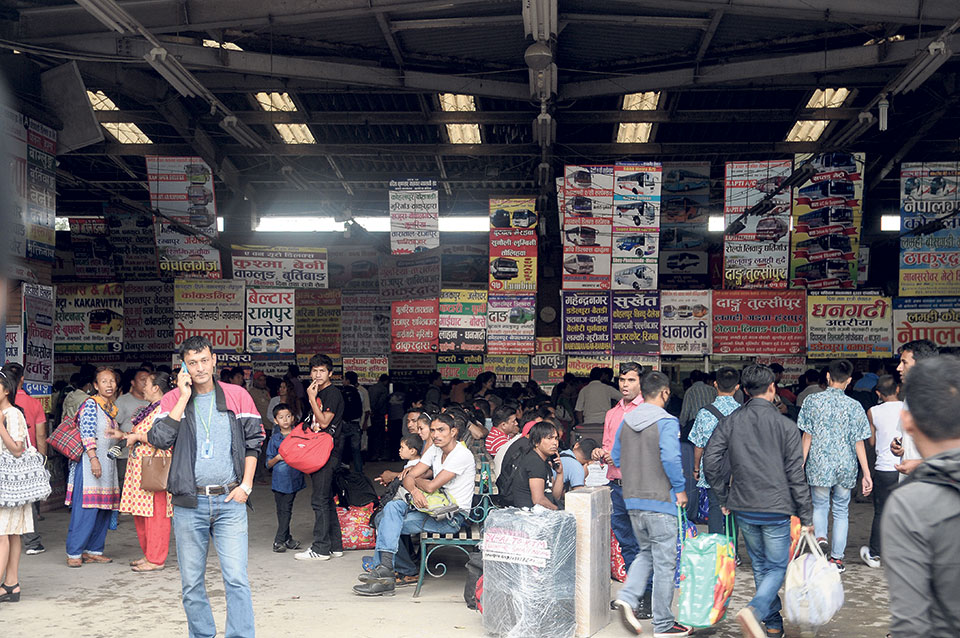
At the Balaju bus park, the place from where most long distance buses start their journey from Kathmandu, incessant announcements gave continuous warnings about fake ticket salesmen.
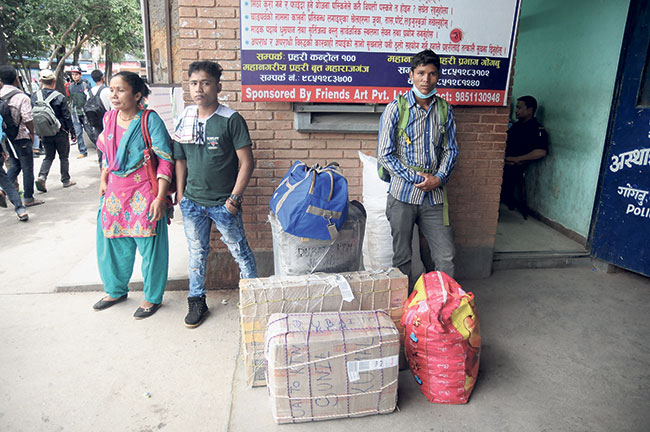 The place seemed extremely crowded with thousands of people leaving the valley to reunite with their families during Dashain. Consequently, loud and indistinctive sounds of people taking in this busy area was clearly heard more than those useful announcements.
The place seemed extremely crowded with thousands of people leaving the valley to reunite with their families during Dashain. Consequently, loud and indistinctive sounds of people taking in this busy area was clearly heard more than those useful announcements.
Lila Bhattarai, a police officer stationed at the passanger’s help desk at Balaju bus park, informed us about the smooth and easy process to buy a ticket there. “I have been on duty for about nine days now, passengers are easily getting tickets to go back home,” says Bhattarai. The reality, however, seemed to contradict her statement.
Getting a bus ticket in Nepal otherwise is not a very difficult task. Throughout the year, passengers need to book their tickets only two to three days in advance. However, during Dashain, bus services announce their booking vacancies a month prior to Dashain. This is where the problem starts. Unusual scarcity of tickets is created in order to hike the bus fare.
“Normally, bus fares from Kathmandu to Morang are not more than Rs 1000 but we paid Rs 1275 this time,” states Raghu Bika who works as a laborer in Kathmandu. He had booked the tickets 13 days in advance. “This is the best deal I could get. Many of my friends don’t even have tickets to go home,” he adds.
Badri Magar at the ticket counter says, “All tickets for Bardiya are sold out for the next five days. This is not a new thing. One must book their ticket as soon as we declare it open for Dashian. Otherwise, it is next to impossible to get a seat.”
This year booking advance tickets for Dashian was declared to open from September 7, 2017 but it actually opened five days later on September 12. The delay was caused due to a dispute between transport entrepreneurs and authorities over transport fare and the issue of allowing the buses to have carrier on the roof, where instead of keeping luggage the bus operators usually cram people.
Nanda Kumari Shahi says that she reached the bus park at four in the morning that day. “I had to lock my children at home,” says Shahi. Getting a taxi that early in the morning wasn’t easy either.
In addition, she has to pay double the metered amount to get to the bus park when she eventually managed to get one. However, the separate line for women made things convenient and she was able to get tickets within an hour. Yet she claims that if she hadn’t come on the first day of the ticket counters being declared open, it would have been impossible for her to reach home during Dashain. “My brother didn’t get tickets to go home,” she adds.
Furthermore, the hassle to get a bus ticket is just one part of the problem. The real troubles begin once your bus journey starts.
According to police officer Bhattarai, they have been making a lot of effort to make sure passengers enjoy a comfortable ride during Dashain. She claims that traffic police has been carefully monitoring buses that leave the valley so that no extra passengers get into these buses. “We have confiscated the stools that are used as extra seats in buses,” she explains pointing to the stools (mudas) hidden beneath the help desk.
However, passengers do not appear convinced. “Once the bus crosses Kalanki, bus conductors start adding extra passengers inside the vehicle. Most commuters have to travel in a congested bus for more than 15 hours,” says Abhishek Shukla who was standing in a long queue to get a ticket to Bhairahawa. “The prices of basic commodities such as water and biscuits also increase once the bus exits Kathmandu,” he adds.
According to Sabitri Pathak, many a times one seat is sold to two different passengers to earn more money during Dashain. This leads to two passengers fighting for a single seat in the bus. “Tickets are sold during Dashain in an extremely haphazard manner. Most of the time, even bus number is not mentioned on the ticket. So the passengers do not know what kind of bus they are traveling in,” adds Pathak.
Maya Tamang came back to Nepal from Kuwait three days ago. She seemed extremely excited to go to her hometown, Jhapa. She is going to meet her sons after 10 long years. “I booked my tickets as soon as I landed in Kathmandu. Getting the ticket was not all that difficult but I do not know my seat number. I hope I get a good seat in the bus,” says Tamang.
Many find themselves in a total predicament during this season. Several passengers succumb to buying overpriced tickets in the black market. “Last year I had bought my ticket to Nepalgunj for almost double the price. I was told that I would get a good seat but they gave me an extremely congested one. The 15-hour journey to Nepaljung was really exhausting,” says Pathak. “Often women with children are asked to compromise. I remember once during Dashain a woman had booked two seats. One ticket was for herself and the other was for her child. After a lot of discussion with her fellow passengers and a bus conductor she was forced to place the child on her lap for the rest of the journey,”she adds.
While on one hand many travellers were distressed about the chaotic management of ticket sales, others seemed complacent and apathetic towards this ill-managed system. “We face the same problem every year. I have actually gotten used to it,” says Umesh Adhikari who was heading to Tehrathum with his friends.
Residents of Kathmandu face inconvenience while commuting in the valley every day. The scarcity of bus tickets during Dashain merely adds to those unresolved problems. “This is how our country works,” says Dugh Bahadur Pun, a 75-year- old senior citizen who had come to Kathmandu for a medical check-up. “I came to Kathmandu because I had a doctor’s appointment. After I reached the hospital I was asked to come back after Dashain. They say all doctors are on leave. There is mismanagement everywhere in Nepal,” he says, clearly frustrated.
“More than half the population in Kathmandu is going back to their villages. There will obviously be a scarcity of buses,” said Kiran Bohora who was unable to get his ticket to go to his hometown Jumla. “A girl who came after me got a ticket just because she knew someone at the counter. There is corruption everywhere,” he says adding that this scenario is unlikely to change unless there is a complete system overhaul.
You May Like This

KMC warns of action against those strewing construction materials on street
KATHMANDU, April 16: The Kathmandu Metropolitan City (KMC) has warned of action against those leaving construction materials unattended on streets... Read More...

National Vitamin 'A' campaign being organized on April 18 and 19
KATHMANDU, April 16: The Nationwide Vitamin 'A' campaign for children is being held on April 18 and 19. ... Read More...
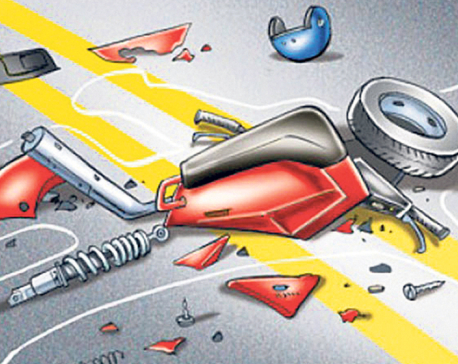
Two killed in separate accidents
BIRATNAGAR, April 16: Two individuals lost their lives in separate motorcycle accidents — one in Urlabari, Morang, and the other... Read More...
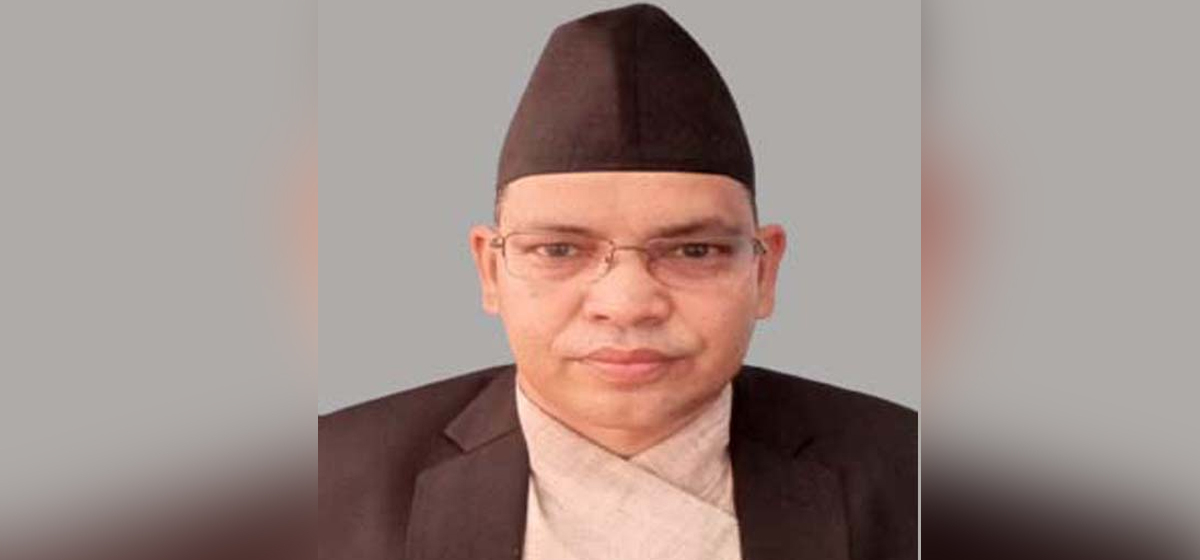


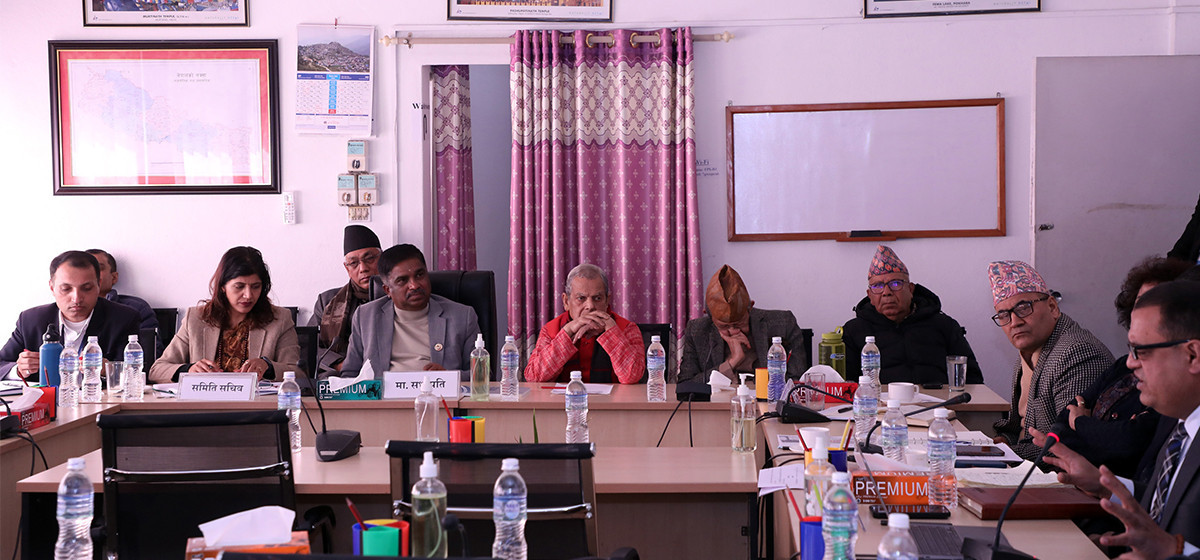
Just In
- Gold price increases by Rs 1,700 per tola
- KMC warns of action against those strewing construction materials on street
- National Vitamin 'A' campaign being organized on April 18 and 19
- Two killed in separate accidents
- Seven parliamentary committees meeting today
- NC aggrieved over leader Neupane's demise
- Bhaktapur industrial festival collects Rs 80 million proceeds
- Chaite Dashain being celebrated by worshiping Durga Bhawani today





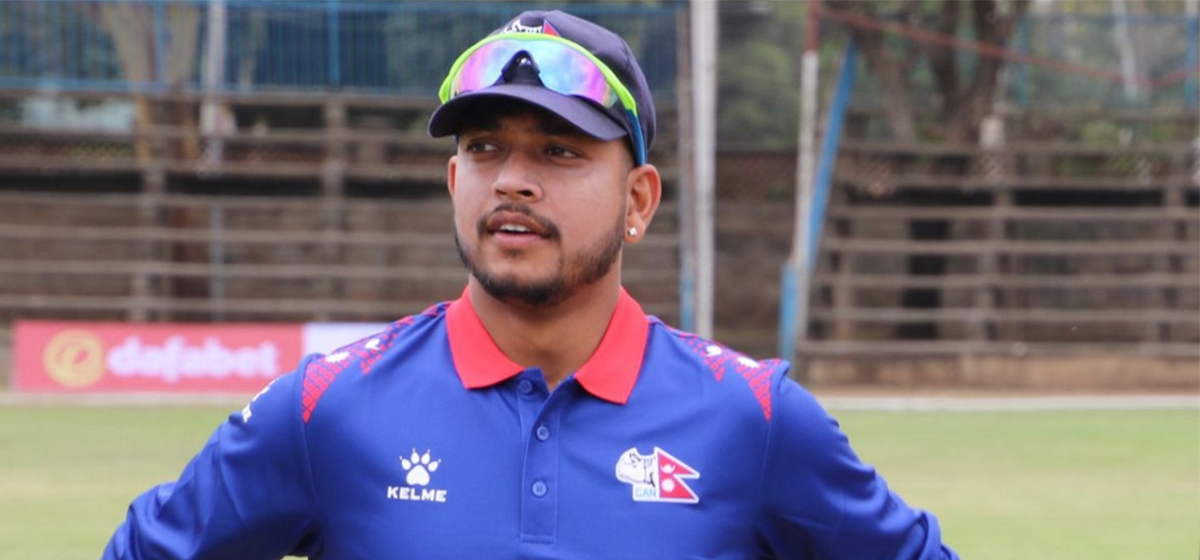
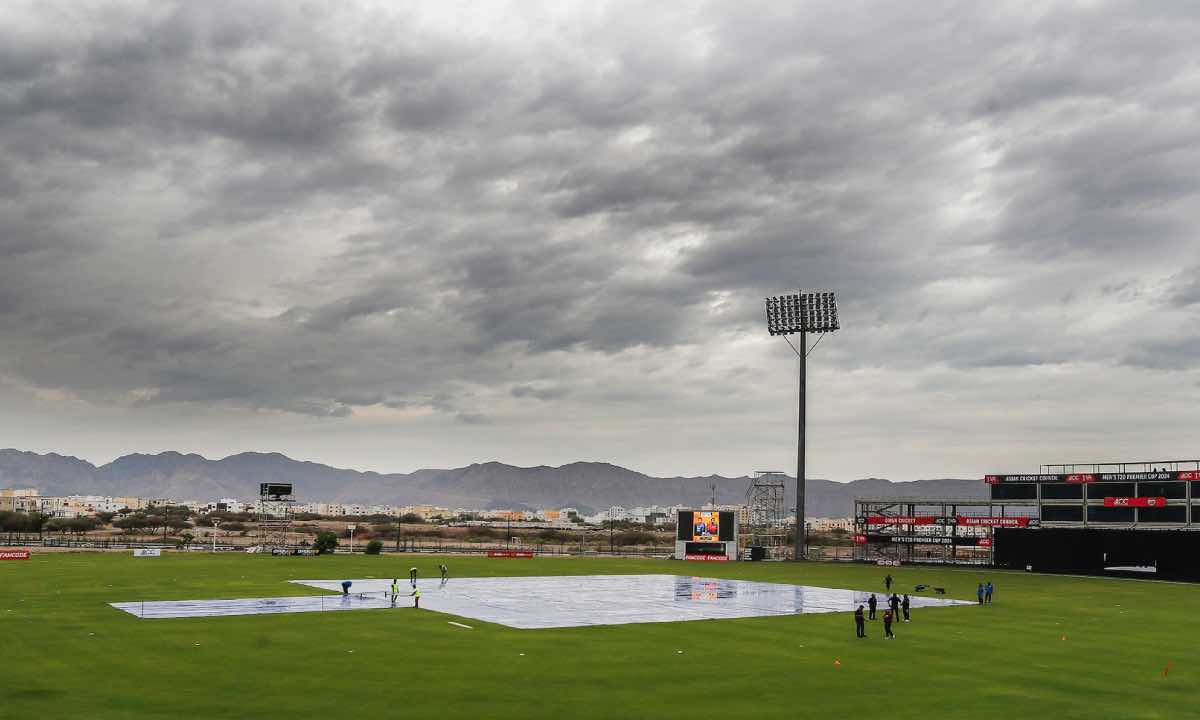

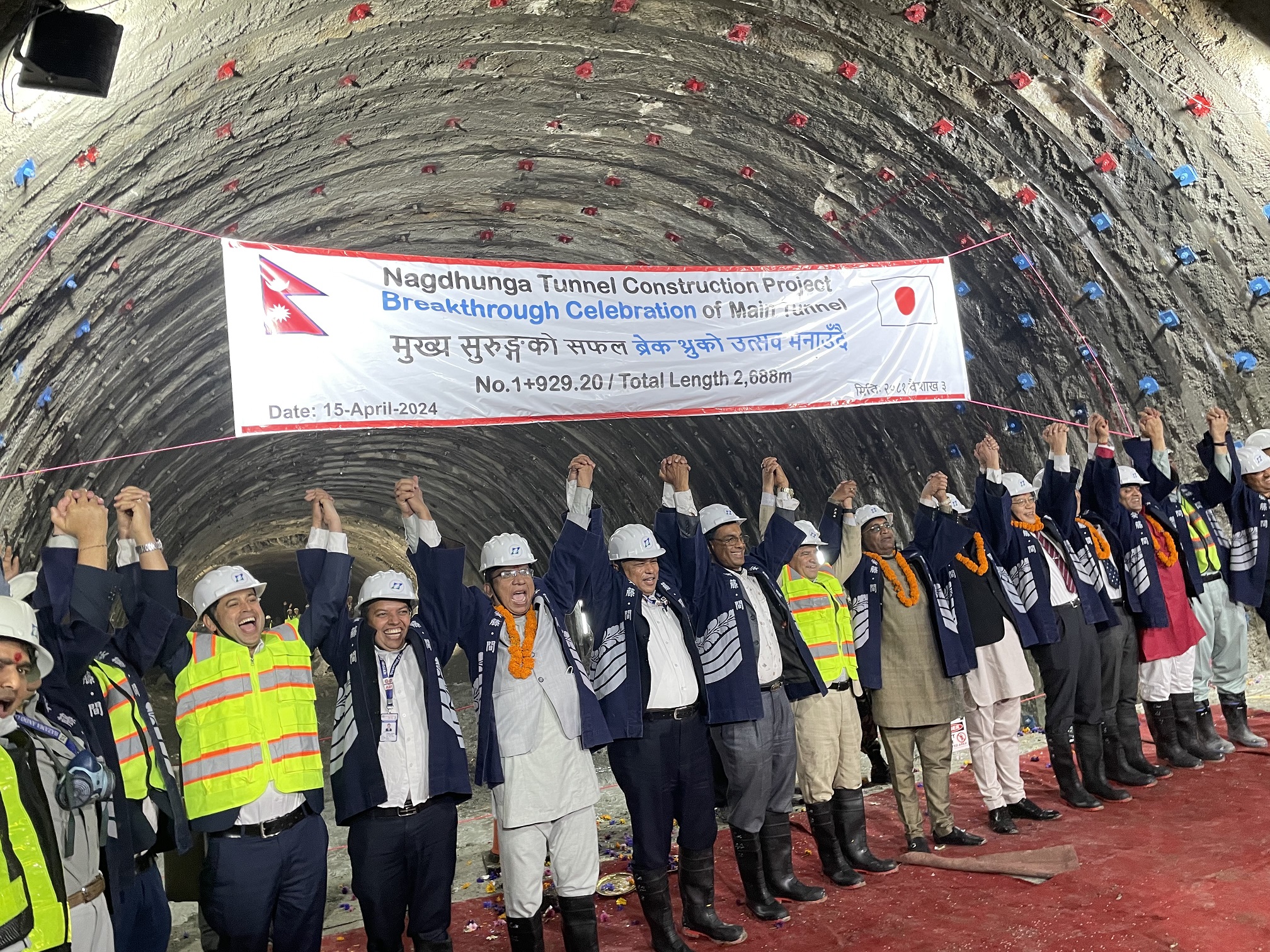
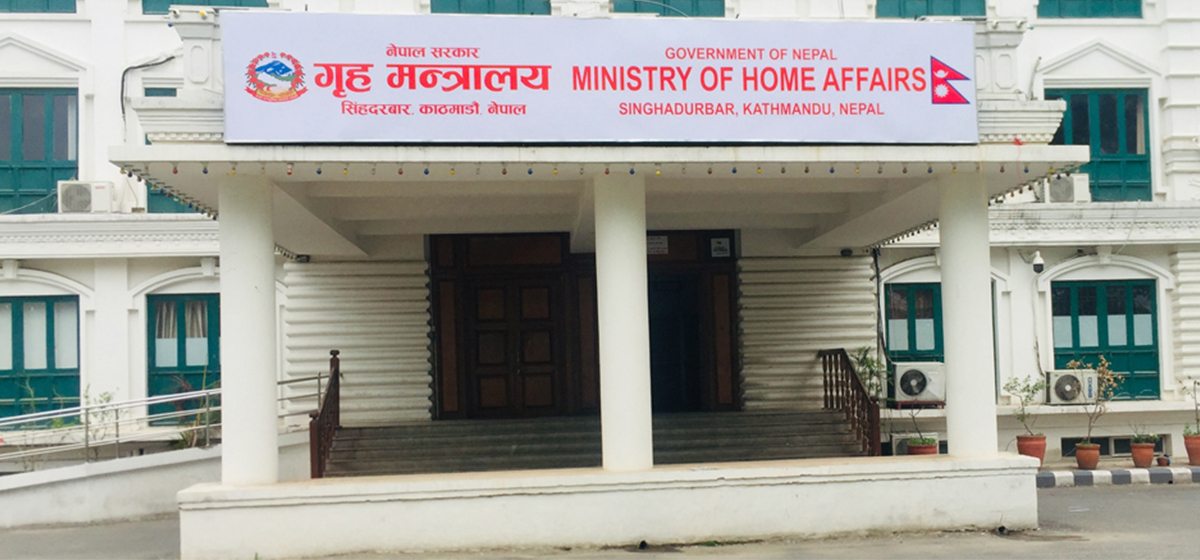


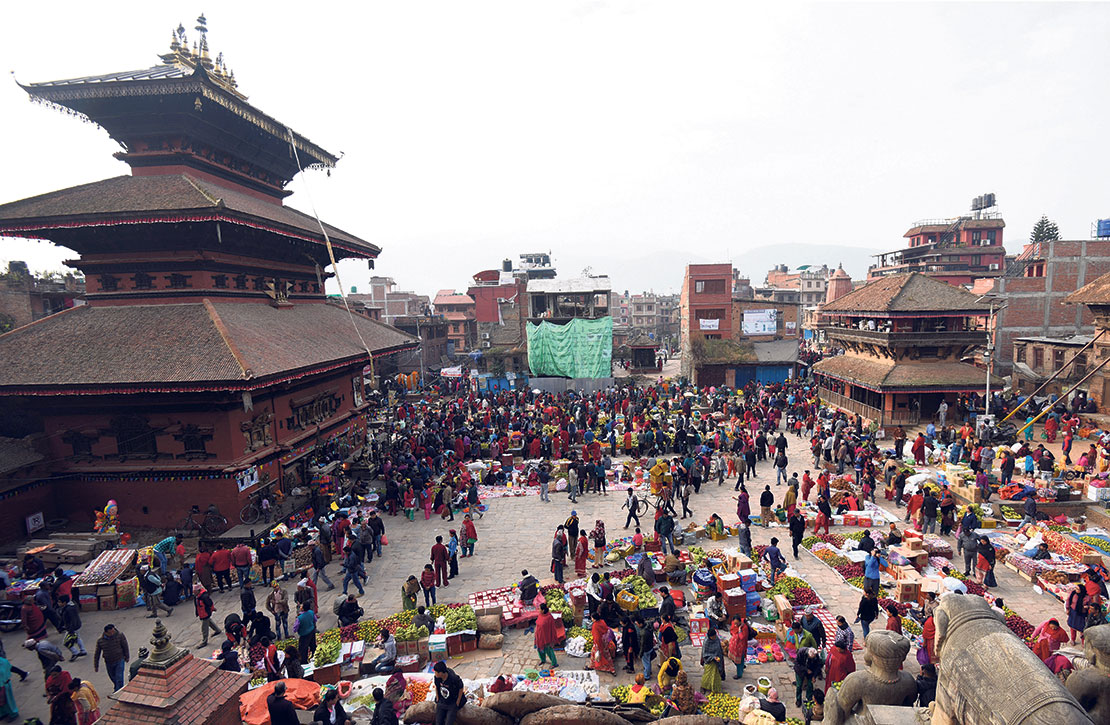
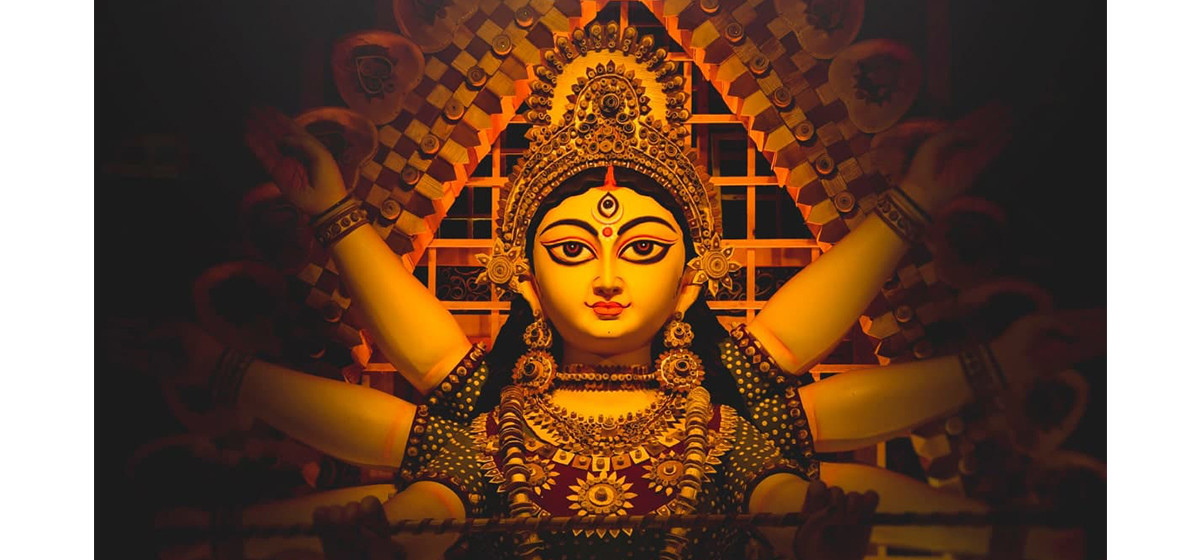
Leave A Comment